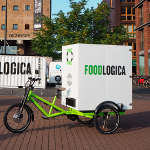
Over the last 10 years, the organic farming sector has multiplied its market by four in the European Union, leading the European Commission to consult experts, stakeholders and consumers (45,000 participants) with the aim of improving organic production in a "quantitative and qualitative" way. In its 2020 action plan, published last March, it summarises these reflections and the market's evolution since 1991, and attempts to propose new measures to meet the expectations of professionals and consumers.
"The European system of organic farming and organic production monitoring was created in 1991 for a niche market, characterised by a small number of consumers and producers. The recent changes in the supply and demand situations indicate that it is time to adapt and improve the Union system for organic food and farming. The public consultation shows that European consumers want high standards for organic agricultural production and controls".
Graphs published by the institution show that the area under organic farming went from 5.6 million hectares per year in 2002 to 9.6 million hectares in 2011. However, this only represents 5.4% of the total utilised agricultural area in Europe. Dacian Ciolos, European commissioner for agriculture and sustainable development, notes that the sector's turnover reaches "nearly 20 billion euros per year".
.jpg) The development of this market is through stakeholders, with whom the European Union wants to have a relationship of confidence, by improving communication on the applicable rules for organic farming, decisions taken at European and national level, as well as "initiatives in rural development and European agricultural policy to stimulate organic farming". This concerns the producers, transformers, distributors and retailers.
The development of this market is through stakeholders, with whom the European Union wants to have a relationship of confidence, by improving communication on the applicable rules for organic farming, decisions taken at European and national level, as well as "initiatives in rural development and European agricultural policy to stimulate organic farming". This concerns the producers, transformers, distributors and retailers.
In a communiqué, the Commission also states that it wants to "simplify legislation to reduce administrative costs for farmers and (...) improve transparency", with group certification. This last point should be reinforced by the creation of an electronic certification system for the internal market and for imports. Mechanisms will also be implemented for exports outside of EU countries.
On the consumer side, the institution aims to improve communication on products from organic farming and the production circuit. Its main aim is to create a climate of confidence for Europeans, by communicating on the European organic farming label, its logo and quality controls. These controls will be more numerous and drastic to avoid fraud with quality labels. The Commission also wants to "encourage the consumption of products from organic farming, for example, in schools", or in hospitals, by modifying existing legislation that hinders this development before 2015.
The rules adopted by the European Parliament in parallel with the Commission action plan aim, in particular, to prohibit mixed production, in other words the mix between organic and traditional production on a same farm.
* Illustration from the European Commission website
News in the same category
Edinburgh is a popular destination for those looking to explore a city rich with history and fantastic nightlife. However, between the exploring and partying, many people like to relax with a nice cup of coffee.
The dish, commonly called "fish & chips", can be enjoyed in the pub or on the go and consists of a large piece of fish fillet, cod or haddock, - covered with a thick layer of dough, before serving. to be immersed in boiling oil.
Specialised in professional deliveries without CO2 emissions, the Cities Fundation deploys its Foodlogica project and its scooters in Amsterdam. Able to transport up to 300 kilos of local products, these bicycles use green electricity.
The Co-op has become the first food retailer to start selling food that is past its best before dates in an effort to reduce food waste.




